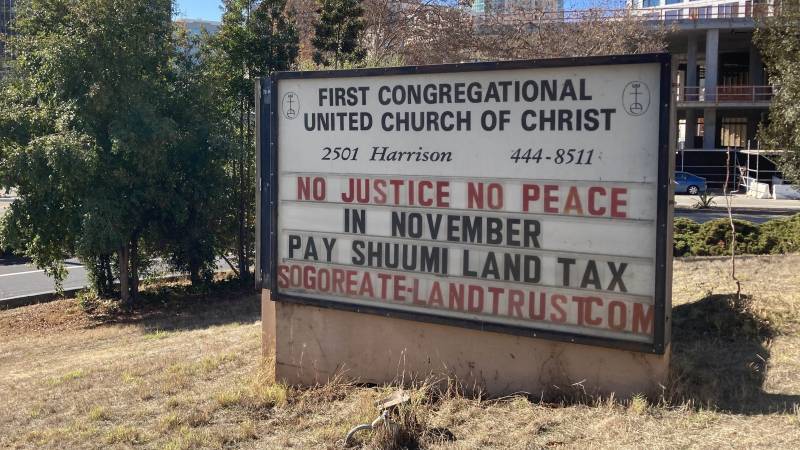This article includes a correction.
- Skip to: How to pay the Shuumi land tax
For the past two decades, since the Bay Street Mall was first built on ancestral burial ground in Emeryville, Corrina Gould and fellow Indigenous activists and community members have gathered there to pray the day after Thanksgiving — Black Friday.
This sacred site is the Emeryville Shellmound: one of hundreds of shellmounds around the Bay Area.
“Shellmounds are created by my ancestors as ceremonial places and as burial sites,” Gould told KQED in 2019.
UC Berkeley archeologist Nels Nelson estimates that in 1909 there were 425 such shellmounds around the Bay Area — and almost certainly many more that had been worn away by water, time and development.

